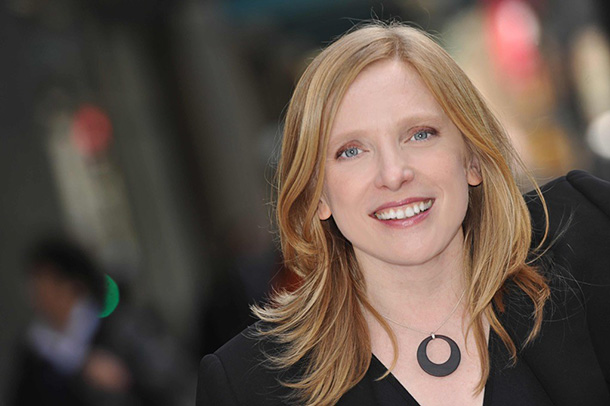Working in media relations can be a mystifying experience. Before I joined The Tyee, I worked as the communications manager for an environmental law organization, and part of my time was spent trying to draw attention to important issues that affect the health and future of all British Columbians.
In my early days on the job, I was flummoxed by what got media pickup, and what was totally ignored. If the issue is important enough, surely it would get attention from the papers, right? Dead wrong. What I eventually learned, through trial and error, is that it's really difficult to get coverage if you are missing one key ingredient: an attention-grabbing story.
"The bottom line when it comes to communications and media strategy is this: if you're got a great story, it's easy to sell," advises Lesli Boldt, president and founder of Boldt Communications, a boutique marketing communications agency based in Vancouver.
Much like me, Boldt learned her trade on the job, learning from talented mentors that showed her the ropes. Twenty years on, Boldt has racked up an impressive client list of change-makers, both local and international, and has become a go-to consultant to handle her clients' big moments.
This Saturday, Boldt will pass the baton and share her hard-won lessons in a Tyee Master Class in downtown Vancouver (more details here). In advance of her class, The Tyee asked Lesli about what it takes to have success in creating a media strategy, and what to expect in Saturday's class.
Why do groups/companies need a media strategy? What happens when they don't have one?
Every day, hundreds of other groups or companies are competing for mainstream media attention -- and at the same time, there are fewer journalists reporting on more stories than ever before. What's more, journalists are overworked and overwhelmed with information from PR flacks every day.
A solid media strategy gives your story or news the best possible chance of success, because you've considered all the factors a journalist or editor would consider when deciding whether you've got a good story: what your story is; why people should care; how it's relevant to what's happening in the community, politics or civil society; good visuals, illustrations, videos or photos you can provide to go with the story; well prepared spokespeople that will make themselves available for interviews.
Ideally, you already have connections with journalists that respect you. Having a media strategy makes your pitch a lot easier to sell, because you already know that you've got a great story that someone will take on before you send your first email or make your first pitch call.
How has the field changed since you started? Do you see more people going directly to social media or other networks to spread their message, and relying less on legacy media?
The field is completely different from the one I entered 20 years ago. Back in the day (the 1990s), you'd communicate with media primarily through press releases (which you faxed in), along with phone pitches or face-to-face conversations. The job was simpler then.
Now, at a minimum, you need to be conversant in the most common social media channels (Facebook, LinkedIn, Twitter, Instagram) and increasingly, in other platforms or channels (blogs, Reddit, Medium, Pinterest, YouTube, Vine, etc.). Many journalists use Twitter to communicate breaking news these days, and so it's really important for your news to be shared there, as well.
Blogs and social media influencers are even more dominant in lifestyle media (food, travel, design, fashion, etc.) -- which has taken a huge hit as a result of the consolidation and contraction of legacy media -- so knowing which social media influencers to reach out to is even more important than it is for the purveyors of hard news.
Legacy media is still regarded as the most credible (and is still the most coveted) channel for clients (including lifestyle clients), although that is changing, too, given that most people consume their news online these days. I would still argue that -- at least for now -- serious journalism from legacy media, including online outlets, is still king in terms of credibility. How the Panama Papers were released is a good case in point.
What's your most-repeated piece of advice to your clients?
Know your audience. I'll often ask clients who their audience is -- "who are you trying to reach?" -- and the answer will be something like, "everybody" or "the general public." Clients are also hungry for mainstream media attention, which they (rightly) view as very credible, but media isn't always the best way to communicate with your target audience.
Most clients have a clear target market or audience. Part of my job is to help them zero in on who they're trying to reach, and then develop strategies for communicating with them effectively.
What can people expect from your Master Class on April 23?
Attendees should think of this class as a "crash course" in communications and media strategy that will go over all of the fundamentals of developing both a communications plan and an effective media strategy for your news. We'll also get folks to test what they've learned by working in groups to develop and pitch story ideas to a Tyee journalist or editor, and find out if their pitches make the grade.
Who is this class perfect for?
The class is ideal for communications co-ordinators, managers or directors who work in public affairs, and who have some experience with strategic communications and media relations, but want to learn more or understand how to get more media coverage for their campaigns.
The class will have a public affairs focus and will emphasize strategies for communicating news and ideas to newsrooms. Having said that, those who work in consumer products or lifestyle PR will also get something out of it, as many of the concepts and strategies are the same, even if the audiences are different.
Don't miss this great opportunity to learn how to create a killer media strategy with Lesli Boldt.
Registration includes coffee from Salt Spring Coffee, a catered lunch from Terra Breads, a glass of Howe Sound Brewing beer to share with classmates, plus $50 free drive time from our promotional partner Modo (new Modo customers only).
Register for one Tyee Master Class and get 25 per cent off the registration price for any other class in the spring series. For the whole class lineup, go here.
For information about Working with Media: How to Develop a Winning Media Strategy with Lesli Boldt on April 23, go here. ![]()
Read more: Media

















Tyee Commenting Guidelines
Comments that violate guidelines risk being deleted, and violations may result in a temporary or permanent user ban. Maintain the spirit of good conversation to stay in the discussion.
*Please note The Tyee is not a forum for spreading misinformation about COVID-19, denying its existence or minimizing its risk to public health.
Do:
Do not: